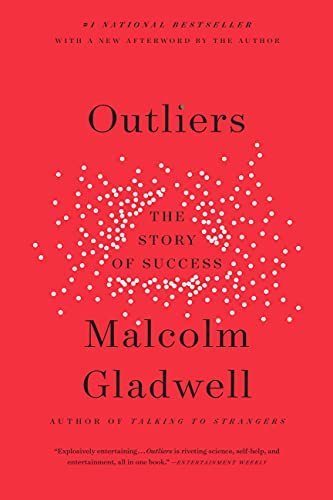Outliers: The Story of Success by Malcolm Gladwell was published in 2008. The book explores the factors that contribute to high levels of success, and it challenges the commonly held belief that success is solely the result of individual talent, hard work, and ambition. Gladwell argues that success is also shaped by a range of external factors, including family background, cultural legacy, and the opportunities and resources available to an individual.
In this article, we’ll take a closer look at Outliers: The Story of Success and examine its key themes, arguments, and insights. We’ll explore some of the book’s main concepts and provide examples of how these ideas apply to real-world situations.
The 10,000 Hour Rule
One of the most famous concepts from Outliers is the “10,000 Hour Rule.” Gladwell suggests that it takes approximately 10,000 hours of practice to achieve mastery in a particular field. He cites examples such as the Beatles, who honed their craft in Hamburg, Germany, playing eight-hour sets every night, and Bill Gates, who gained access to a computer lab at a young age and spent countless hours programming.
Gladwell’s argument challenges the idea of innate talent and suggests that success is largely the result of hard work, opportunity, and practice. The concept has been widely discussed and debated since the book’s publication, with some experts questioning the validity of the 10,000 Hour Rule and others embracing it as a key factor in the achievement of excellence.
Cultural Legacy and the Matthew Effect
Another important theme in Outliers is the idea of cultural legacy and its impact on success. Gladwell argues that cultural legacies, such as language and social norms, can shape an individual’s opportunities and mindset in significant ways. He also introduces the concept of the “Matthew Effect,” which suggests that those who are already successful will continue to accumulate advantages and opportunities, while those who are not successful will be further marginalized.
Gladwell’s insights on cultural legacy and the Matthew Effect challenge our assumptions about meritocracy and the idea that success is solely the result of individual effort. They highlight the importance of understanding and addressing systemic barriers to success, such as poverty, discrimination, and unequal access to resources.
The Importance of Opportunity
One of the most compelling arguments in Outliers is the role of opportunity in success. Gladwell suggests that success is not just the result of individual effort and talent, but also the product of external factors such as access to education, mentors, and networks. He cites examples such as the story of Christopher Langan, a brilliant individual who was never able to realize his full potential due to a lack of opportunity and resources.
Gladwell’s argument highlights the importance of creating equitable opportunities for all individuals, regardless of their background or circumstances. It also challenges the belief that success is solely the result of individual effort and encourages us to consider the broader societal factors that contribute to success.
Critiques and Controversies
While Outliers has received widespread acclaim and has been a bestseller since its publication, it has also been subject to critiques and controversies. Some have questioned the validity of Gladwell’s claims, arguing that his arguments oversimplify complex issues and ignore the role of individual agency and talent.
Others have challenged Gladwell’s framing of success, arguing that his definition of success is limited and narrow, and that it does not account for the complexities and nuances of different fields and disciplines.
Conclusion
Despite these critiques, Outliers remains a popular and influential book that has sparked important conversations about success, opportunity, and social inequality. Its insights and arguments have been cited in a range of fields, from education to business to psychology, and its impact on popular culture has been significant.
Outliers: The Story of Success is a thought-provoking and engaging book that challenges our assumptions about success and achievement. By exploring the factors that contribute to high levels of success, Gladwell offers a nuanced and complex view of success that goes beyond individual talent and hard work.
Through examples and anecdotes, Gladwell demonstrates how success is shaped by a range of external factors, including family background, cultural legacy, and the opportunities and resources available to an individual. He argues that we need to look beyond individual effort and consider the broader societal factors that contribute to success, and he highlights the importance of creating equitable opportunities for all individuals.
While Outliers has been subject to critiques and controversies, it remains a powerful and influential book that has sparked important conversations about success and social inequality. Its insights and arguments have been cited in a range of fields, and its impact on popular culture has been significant.
Overall, Outliers is a recommended read for anyone interested in understanding the factors that contribute to success and achievement. It challenges our assumptions about success and encourages us to consider the broader societal factors that contribute to individual and collective success. It is a thought-provoking and engaging book that will inspire and inform readers from all walks of life.
Check out these other recommended reads: The Best Book for Self Improvement

